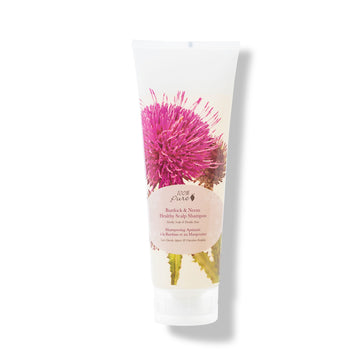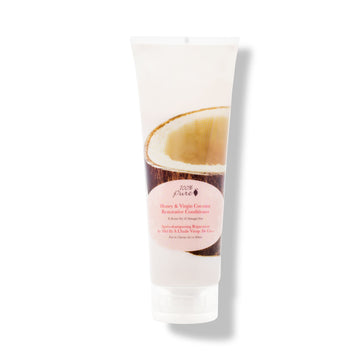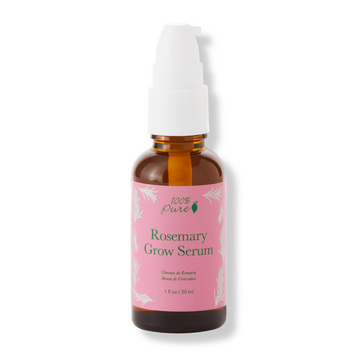Do you have a healthy scalp, or is it asking for help?
Posted on March 17, 2025 Written by: 100% PURE®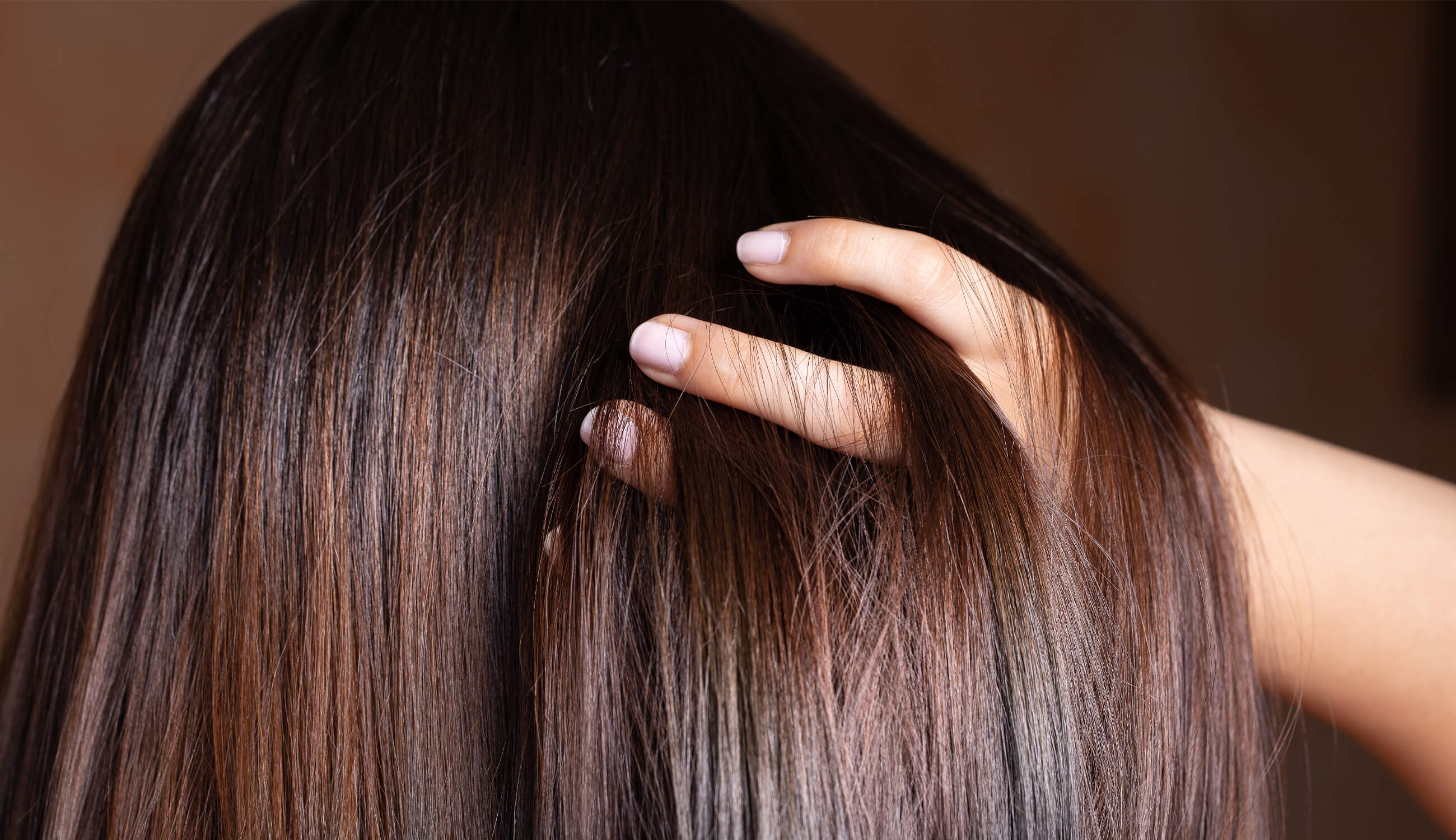
Our sweet, sensitive scalps are often left susceptible to stress, harsh hair products, and a lack of nourishment. This negligence leads to a wide variety of issues, including but not limited to dryness, itchiness, an excess of oil at the follicle, or the dreaded flakes.
When these issues arise on the scalp, it’s important to pay attention to the symptoms and what causes them. Your scalp might be trying to tell you exactly what’s going on, and how to stop it.
Without further ado here are four common signs of scalp distress, along with possible underlying causes.
Itchy, Scratchy Sensations
Itchy scalp is a common occurrence among many individuals. So much so, that there is an official term for it: scalp pruritus.
An itchy scalp springs from a wide variety of causes, but two of the most common include dandruff and seborrheic dermatitis: an inflammatory skin condition. Seborrheic dermatitis can be caused by a wide range of triggers, both environmental and genetic. Some of these factors include:
- Allergic reaction
- Eczema
- Stress or anxiety
- Atopic dermatitis
While an itchy scalp is bothersome to say the least, it is possible to minimize its occurrence. You’ll need to learn what causes it, so that you can reduce your exposure to those factors. And though this process may take some time, there are a few remedies known to help relieve itching sensations while promoting a healthy scalp.
One of these remedies includes coconut oil, which is rich in a saturated fat known as lauric acid, which is reported to have antimicrobial and antibacterial properties. Coconut oil may also work as an effective treatment against head lice when combined with anise, as shown in a fascinating 2010 study.
Alternatively, tea tree oil and apple cider vinegar also make suitable home remedies for a healthy scalp, as together they possess the trifecta of antibacterial, antifungal, and antimicrobial properties.
Meanwhile, it’s important to make sure that your scalp isn’t getting dehydrated from the products you put on it. To avoid dehydrating the scalp, use hair products designed to nourish and quench the scalp; our Moisture Drench Shampoo is a no-brainer.
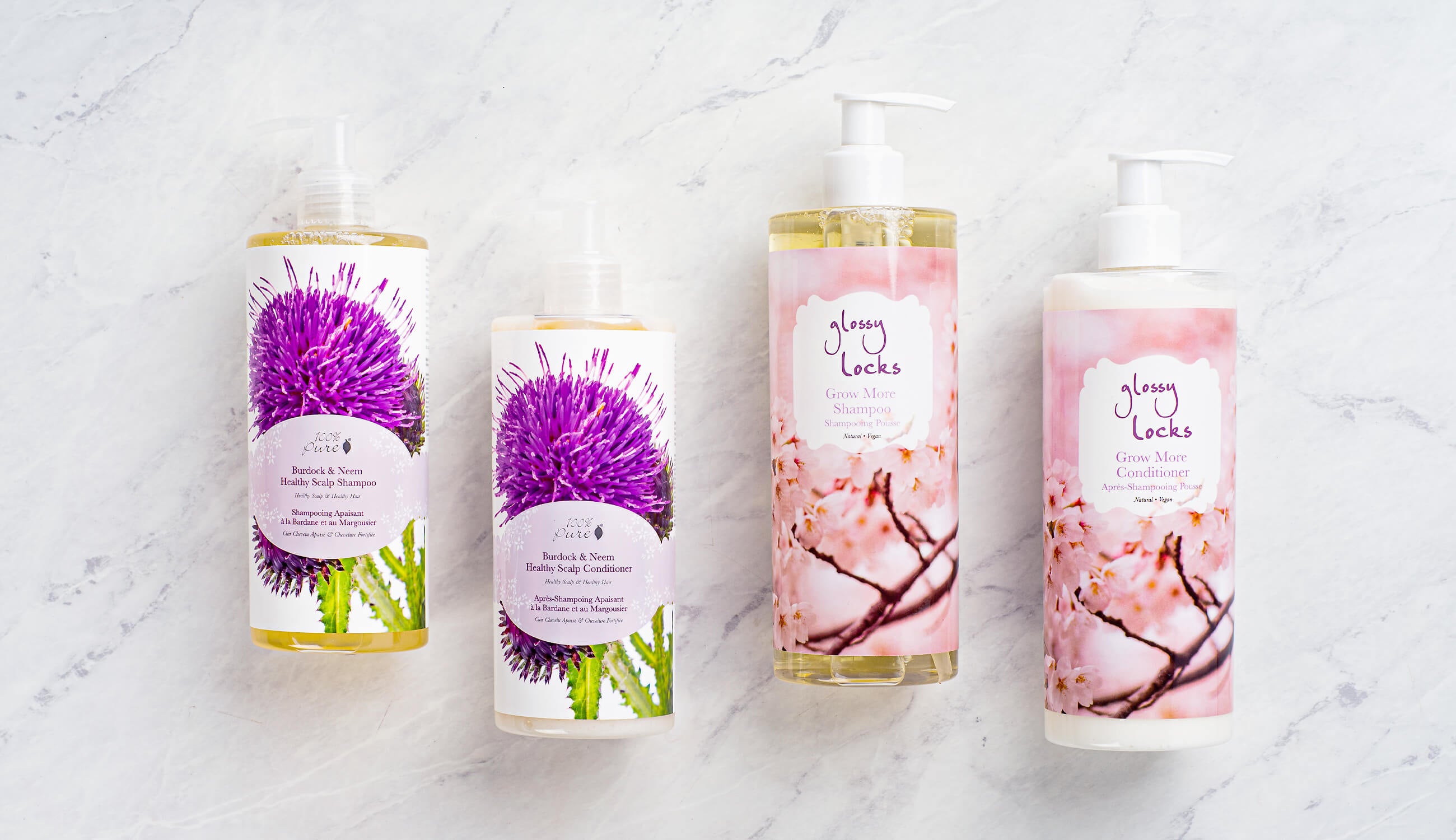
Flaky Scalp
Fewer symptoms are more telltale (or obvious) than a flaky scalp. Dandruff consists of white, flakey patches of skin shedding from the scalp, which get caught in the hair and on the shoulders – effectively delivering a death blow to our self confidence.
In a lot of cases, the worst of one’s dandruff might be that they won’t be able to wear their black turtleneck for a few days. In severe instances though, it's important that you seek attention from a professional; depending on the underlying cause, severe cases of dandruff will only get worse when left untreated.
To care for your flaking scalp, stick to products that offer antimicrobial and antifungal properties, which will help slough off excess dandruff while protecting and soothing delicate scalp tissue. Look for products with tea tree oil; our Burdock and Neem Healthy Scalp Conditioner is a soothing first line of defense against scalp irritation.
Waxy Buildup Near the Root
In addition to pesky dandruff the scalp can also be plagued with scalp buildup, which typically exists as a waxy buildup near the root of the hair.
There are several different causes of scalp buildup, and it’s incredibly helpful to learn the underlying cause of your underlying condition. This is not only in order to treat it, but to be better equipped to prevent it in the future.
One of the two main types of scalp buildup is natural, meaning that it’s due to the accumulation of dead skin cells, sebum, and sweat. The other type of scalp buildup is product congestion, which is typically caused by hair products that contain too many waxy substances and not enough surfactant power.
Both types will leave a worrisome of residue in the hair if not kept in check, which can clog the hair follicles and irritate the scalp.
In cases of scalp buildup, one of the most popular remedies is a clarifying shampoo. Clarifying shampoos can be thought of as ‘shampoos on steroids’, and will penetrate excess buildup to loosen it from your scalp.
Since clarifying shampoos are so potent, we recommend that you stick with a formula with gentle, plant-based ingredients. Our clarifying Grow More Shampoo is designed to cut through buildup to encourage healthy, unburdened hair growth. Regular use of a mint-infused formula like our Burdock and Neem Healthy Scalp Shampoo is also a suitable option for keeping things buildup-free.
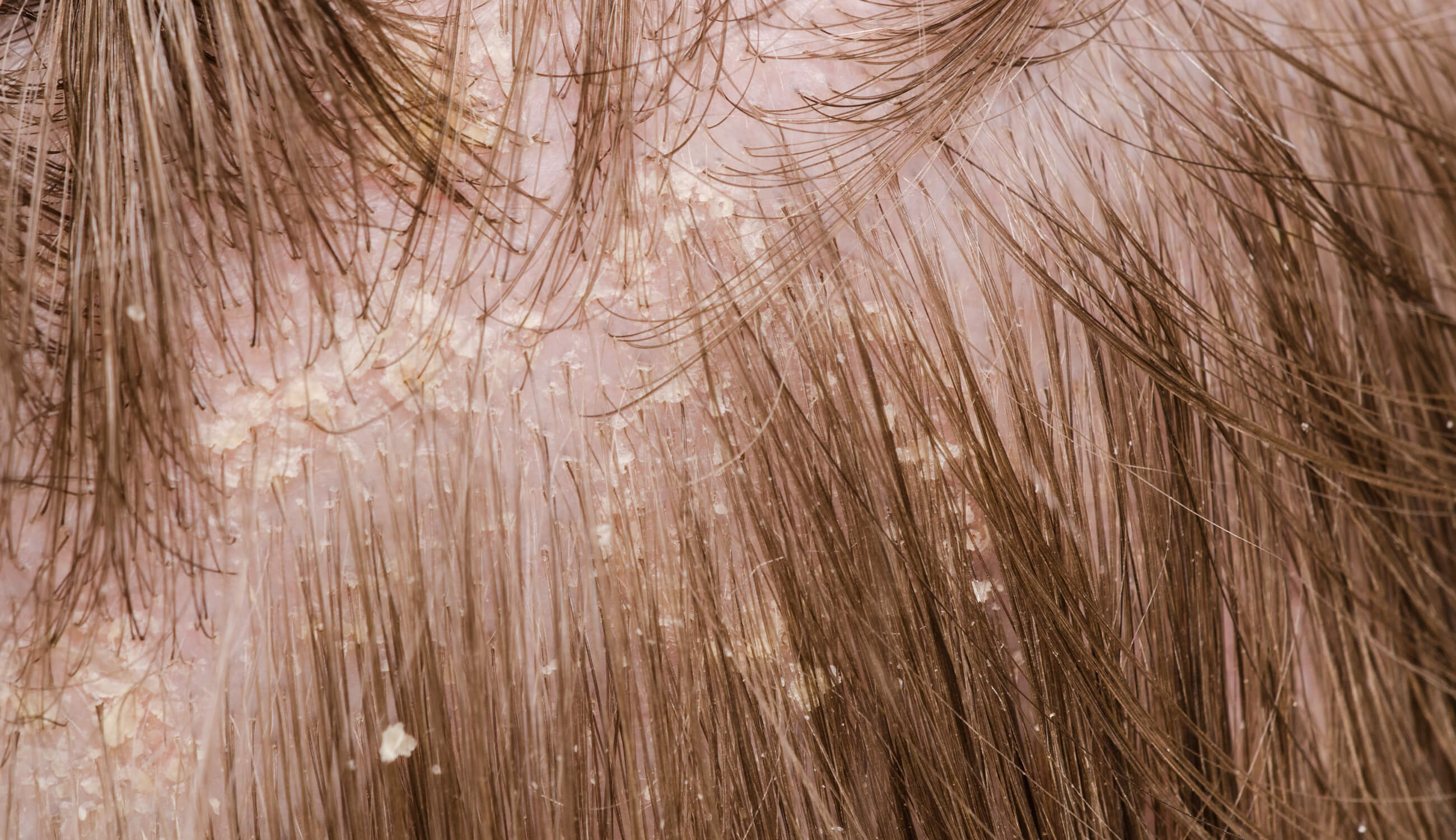
Excessively Oily Scalp
For those of you that fear oil on your scalp, it’s important to understand that a little oil on the scalp is healthy. It lubricates the skin and helps protect the follicles from moisture loss and friction from styling while supporting healthy, shiny hair growth.
But if you’re feeling like you need to wash your hair every single dingle day just to keep it from feeling greasy, your scalp oil glands may be indicating a larger issue at hand.
It could be something fairly straightforward; for instance, forehead acne can cause excess oil to migrate to the scalp. Another possible factor is the products you use, which should always be reviewed when considering the causes of a scalp condition.
Shampoos with artificial chemicals and harsh detergents – like the insidious sodium laureth sulfate (SLS) – can actually age the hair. So instead, limit yourself to using only sulfate-free shampoos.
Now, this cause of an oily scalp might be shocking: you may be overwashing your hair. Excessive shampooing can cause your scalp to dry out more frequently, prompting your glands to create more oil to compensate for the severe lack of natural lipids.
If you’re currently washing your hair every single day, try introducing your hair to less frequent washes. Start slowly by washing your hair every two days instead, and give your hair time to adjust. If you notice a reduction in excess oil after a week, consider making your washing schedule every three days. However if the condition persists, there is likely another cause at play that requires advice from a dermatologist.
While basic scalp care is encouraged for all, don’t forget that there are some cases that will do best under the attention of a professional dermatologist or esthetician. So if you believe that any irritation in your scalp goes beyond the usual, consulting an expert may be the wisest option. For more lustrous hair on an everyday basis, consult our guide on how to keep your scalp healthy.
More 100% PURE Products to Support a Healthy Scalp and Hair
Taking care of your scalp is essential for maintaining healthy, strong hair and preventing discomfort like itchy scalp, dandruff, or excess oil production. These 100% PURE products are packed with natural ingredients to nourish your scalp while keeping your hair looking vibrant.
Burdock & Neem Healthy Scalp Shampoo – Best for Itchy Scalp & Dandruff
This sulfate-free shampoo soothes irritation, fights dandruff, and helps maintain a balanced, hydrated scalp with burdock root, neem, and tea tree oil.
- Why you’ll love it: It gently cleanses while reducing itchy scalp and flakiness, leaving hair refreshed and buildup-free.
Honey & Virgin Coconut Restorative Conditioner – Best Conditioner for Dry or Damaged Hair
Packed with deeply hydrating coconut oil, honey, and sea kelp, this conditioner restores moisture to dry, brittle hair while strengthening the skin barrier on the scalp.
- Why you’ll love it: It replenishes hydration and prevents further scalp irritation, making it the best conditioner for restoring shine and softness.
Rosemary Grow Serum – Best for Hair Growth & Scalp Circulation
This botanical-infused serum helps improve circulation and scalp health, stimulating hair follicles with rosemary, caffeine, and peppermint essential oils.
- Why you’ll love it: Perfect for strengthening hair, reducing scalp inflammation, and promoting fuller, healthier locks.
How Your Skin Barrier Affects Scalp Health
Your skin barrier is your body’s first line of defense, and this includes the scalp. A healthy scalp barrier protects against irritants, dryness, and environmental damage, while an impaired barrier can lead to itchy scalp, sensitivity, and excessive oil production.
Signs of a Weakened Scalp Barrier:
- Dryness & Flakiness – If your scalp feels tight or flaky, it may lack essential moisture and nutrients.
- Itchiness & Sensitivity – An irritated scalp that feels itchy or inflamed may be reacting to harsh hair products or environmental stressors.
- Excess Oil Production – When the scalp’s barrier is compromised, it may overproduce oil to compensate for moisture loss.
How to Strengthen Your Scalp Barrier:
- Use Gentle, Sulfate-Free Shampoos – Harsh detergents strip the scalp’s natural oils, leading to imbalanced oil production and irritation. Switch to natural, sulfate-free shampoos like Burdock & Neem Healthy Scalp Shampoo.
- Hydrate with a Nourishing Conditioner – Apply Honey & Virgin Coconut Restorative Conditioner to lock in moisture and protect the scalp.
- Incorporate a Scalp Serum – A few drops of Rosemary Grow Serum can calm irritation and support a healthy skin barrier.
By strengthening your scalp’s skin barrier, you can reduce itchiness, flaking, and excessive oil, leading to healthier hair growth and scalp balance.
FAQ: Scalp Health & Hair Care
1. What causes an itchy scalp, and how can I relieve it?
An itchy scalp is often caused by dryness, dandruff, buildup, or irritation from harsh products. To relieve it:
- Use a gentle, sulfate-free shampoo like Burdock & Neem Healthy Scalp Shampoo to cleanse without stripping moisture.
- Avoid over-washing, which can lead to dryness and irritation.
- Massage a few drops of Rosemary Grow Serum into your scalp to reduce inflammation and improve circulation.
2. How does the scalp’s skin barrier affect hair health?
The scalp’s skin barrier protects against environmental stress, dryness, and irritation. If it’s compromised, you may experience itchiness, sensitivity, or excess oil production. Strengthening the barrier with hydrating conditioners and scalp treatments helps maintain healthy, resilient hair.
3. What is the best conditioner for maintaining scalp hydration?
The best conditioner for scalp hydration is one that moisturizes without clogging hair follicles. The Honey & Virgin Coconut Restorative Conditioner deeply nourishes while protecting the scalp barrier and soothing irritation.
4. Can washing my hair too often cause an itchy scalp?
Yes! Over-washing strips the scalp of natural oils, leading to dryness, itchiness, and even increased oil production as the scalp tries to compensate. Try washing every 2–3 days and using gentle, moisturizing products to restore balance.
5. Are face towels important for scalp health?
Yes! Using clean, soft face towels to gently dry your hair and scalp helps prevent irritation and breakage. Avoid rough, abrasive towels, which can damage hair cuticles and increase scalp sensitivity.
Conclusion: Listen to Your Scalp for Healthier Hair
Your scalp is the foundation of healthy hair, and paying attention to its signals can help you address issues before they worsen. Whether you’re dealing with itchy scalp, dandruff, or excess oil, using gentle, natural products and nourishing treatments can restore balance and improve hair health.
By incorporating 100% PURE products you can soothe irritation, strengthen your scalp’s skin barrier, and promote healthy, luscious locks.
A little scalp love goes a long way—so treat it well and enjoy the beautiful, healthy hair you deserve! 🌿✨
- Tags: Bath Body Hair, Body, March-2025
We carefully hand-select products based on strict purity standards, and only recommend products we feel meet this criteria. 100% PURE™ may earn a small commission for products purchased through affiliate links.
The information in this article is for educational use, and not intended to substitute professional medical advice, diagnosis, or treatment and should not be used as such.
















